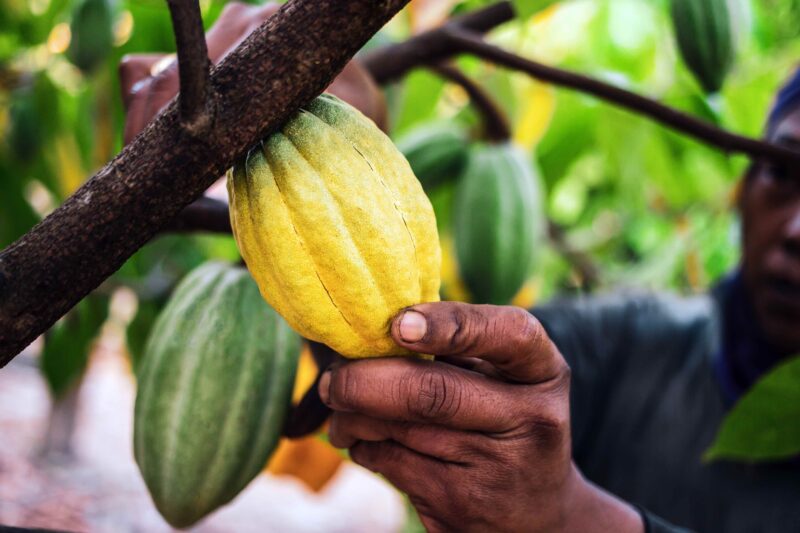Ivory Coast’s Conseil du Cafe-Cacao reported to have temporarily suspended cocoa exports

pic: Shutterstock
The Conseil du Cafe Cacao has temporarily suspended export of cocoa supplies throughout the remainder of June in response to ongoing key issues surrounding crop deficits, according to local region reports, writes Neill Barston.
As previously covered by Confectionery Production, a combination of poor weather-impacted harvests over the past two years, adverse weather conditions, high fertiliser prices and the impact of illegal gold mining have placed significant strains on the region’s cocoa production.
Consequently, international market prices have proved significantly volatile in recent months, with Futures commodity platforms in New York and London trading at around $12,000 a tonne for the crop in April, before sharply dropping the following month by 30% to around $7,000. However, the past few weeks have seen prices recover towards $10,000, as supply shortages, as outlined by the ICCO cocoa organisation have prompted concerns over ongoing supply provision.
In the latest development, Confectionery Production understands that the Ivorian government made the decision in a bid to support local cocoa grinders in their operations, amid industry concerns that processors in the region were running low on available stocks to make available to the market.
Grinders are reported to have stated that 250,000 tonnes of cocoa is required for the present mid crop harvest to maintain sufficient production levels, with regional expectations that the present season would yield a reduced output of 450-500 tonnes, reduced from 550,000 tonnes for the same period last year.
As has been reported to Reuters and other media in the region, the move could impact major cocoa processing businesses including Cargill, Barry Callebaut, Cemoi and Olam, which may be forced to make up the deficit from other sources. Confectionery Production has sought further comment from the CCC on the issue.
Furthermore, the move follows a reported decision last month by the Coffee and Cocoa Council (CCC) suspended a total of 40 cocoa co-operatives which it suspected of stockpiling crop supplies that it is alleged they intended to hoard and sell at a higher price to exporters.
While, as the Cocoa Post noted, it is not illegal to store beans beyond conventional periods, it is not lawful in the region for a practice of retaining them to be sold at a later date for an elevated fee – which, as previously reported, has led to reported ongoing issues with cocoa smuggling to neighbouring countries which have fetched a considerably higher prices for supplies compared to the present season farm gate prices of $2,470 a tonne that farmers are paid in Ghana and Ivory Coast.
This fee had been uprated by the government by more than 50% in both countries, in the wake of major price rises on international commodity markets, which had not filtered down into rates paid to farm cooperatives due to the current system of trading cocoa in the two West African nations, which operate an advanced price arrangement a year ahead of product, which has continued to draw criticism from some international observers of a lack of flexibility in paying agricultural workers more when markets are high globally.



